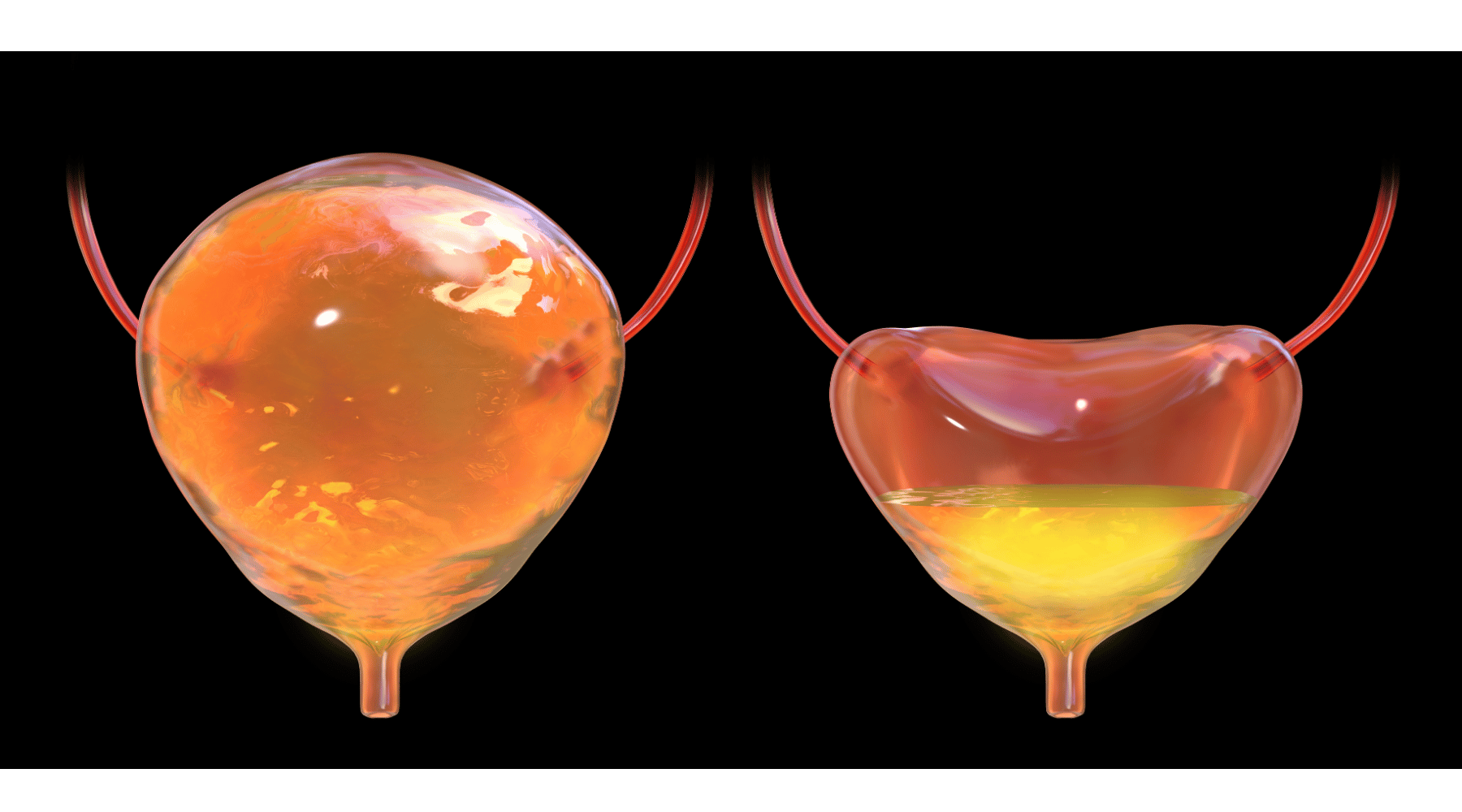
Understanding the Role of Mast Cells in Skin Health: Insights into Inflammation and Conditions Like Eczema and Psoriasis
Have you ever wondered how your body’s immune response affects your skin health? At SOLV Naturals, we believe that understanding the intricate role of mast cells in inflammation is key to unlocking better skin health and overall well-being. In this article, we will explore how these specialized immune cells contribute to conditions like eczema and psoriasis, shedding light on their activation and the inflammatory mediators they release. By the end, you’ll gain valuable insights into managing these skin conditions through natural approaches, empowering you to embrace a healthier, more vibrant life.
Understanding Mast Cells and Their Role in Skin Conditions
Mast cells are specialized immune cells that play a crucial role in inflammatory responses. These unique cells originate from the bone marrow and migrate to various tissues throughout the body, particularly in the skin, lungs, and digestive tract. Structurally, mast cells are characterized by their large granules filled with a variety of chemical mediators, including histamine, cytokines, and proteases. This composition enables them to act swiftly in response to allergens and pathogens, making them integral players in our immune system.
Mast cells serve multiple functions in the body; they are essential for maintaining homeostasis and protecting against infections. When activated, they can release a variety of inflammatory mediators that contribute to both protective immune responses and pathological conditions. For instance, during an allergic reaction, mast cells release histamine, which causes blood vessels to dilate and leads to increased permeability. This process allows immune cells to reach the site of infection or injury more effectively but can also result in unwanted inflammation and tissue damage if not properly regulated.
Understanding mast cell activation is vital for comprehending how inflammation affects skin health. When activated, mast cells can release a variety of inflammatory mediators. This release includes not only histamine but also cytokines, which are signaling molecules that influence the behavior of other immune cells. The activation of mast cells can be triggered by various factors such as allergens, pathogens, or physical stressors. Once activated, these cells can initiate a cascade of inflammatory responses that may lead to symptoms like redness, swelling, and itching—common features of many skin conditions.
Research has shown a significant link between mast cell activity and skin disorders like eczema and psoriasis. In these conditions, mast cells contribute to the pathophysiology by perpetuating inflammation and recruiting other immune cells to the affected areas. Studies have indicated that increased mast cell numbers are often found in the skin lesions of individuals suffering from eczema and psoriasis. These findings suggest that targeting mast cell activity may be a promising approach for managing these chronic skin conditions, as reducing their activation could alleviate symptoms and improve overall skin health.
As we delve deeper into the implications of mast cell activity on specific skin conditions like eczema and psoriasis, it becomes clear that understanding their role is crucial for effective management strategies. Recognizing how these specialized immune cells function can empower us to explore natural approaches to enhance our skin health while minimizing the impact of inflammation.
The Impact of Mast Cells on Eczema
Eczema is characterized by chronic inflammation and itching, conditions heavily influenced by mast cells. As we delve into the intricacies of eczema, it becomes evident that mast cells play a pivotal role in exacerbating symptoms and triggering flare-ups. Understanding how these immune cells operate within the context of eczema can empower us to adopt more effective management strategies, ultimately leading to improved skin health.
Symptoms and Triggers
Understanding the symptoms and common triggers of eczema is essential for effective management. Individuals with eczema often experience a range of distressing symptoms, including intense itching, redness, dryness, and scaling of the skin. These symptoms can vary in severity, often fluctuating with environmental factors or lifestyle choices. The relentless itch-scratch cycle frequently leads to secondary infections, further complicating the condition.
Mast cell activation is closely tied to various triggers that can worsen eczema symptoms. Common environmental triggers include allergens such as dust mites, pet dander, pollen, and mold. Additionally, irritants like certain soaps, detergents, and fabrics can provoke mast cell responses, leading to heightened inflammation. Dietary factors may also play a role; some individuals find that specific foods, such as dairy or gluten, can exacerbate their eczema symptoms. By identifying and managing these triggers, we can help mitigate mast cell activation and reduce the frequency and severity of flare-ups.
Current Treatment Options
Various treatment options aim to reduce inflammation and control mast cell activation in eczema patients. Topical therapies are often the first line of defense; corticosteroids are commonly prescribed to alleviate inflammation and itching. These medications work by dampening the immune response and reducing mast cell activity in affected areas. However, prolonged use of topical steroids may lead to skin thinning or other side effects, prompting the need for alternative approaches.
Non-steroidal topical treatments, such as calcineurin inhibitors, offer a promising option for managing eczema without the risks associated with steroids. These medications help modulate the immune response and inhibit mast cell activation, providing relief from inflammation and discomfort. Additionally, newer biologic therapies specifically targeting immune pathways have emerged as effective treatments for moderate to severe eczema cases. By focusing on the underlying mechanisms driving mast cell activation and inflammation, these treatments aim to provide lasting relief.
Lifestyle modifications also play a crucial role in managing eczema. Moisturizing regularly helps maintain skin barrier integrity and reduces dryness, which can trigger mast cell activation. Incorporating natural remedies such as soothing oatmeal baths or topical products containing ingredients like calendula or chamomile may provide additional relief by calming inflammation and promoting healing.
As we continue our exploration of mast cells in relation to skin health, it’s essential to recognize their involvement not only in eczema but also in other chronic skin conditions like psoriasis. Understanding how these immune cells contribute to various inflammatory processes will further guide us in developing comprehensive treatment strategies tailored to individual needs.
The Role of Mast Cells in Psoriasis
Psoriasis is another chronic skin condition where mast cells play a pivotal role in disease progression. This complex disorder is characterized by the rapid proliferation of skin cells, leading to thick, red, scaly patches that can be both physically and emotionally distressing. Understanding how mast cells contribute to the pathology of psoriasis is essential for developing more effective management strategies.
Mechanisms of Action
Mast cells contribute to psoriasis through several mechanisms that promote inflammation. When activated, these immune cells release a variety of inflammatory mediators, including histamine and cytokines, which are crucial in orchestrating the immune response. For instance, cytokines such as TNF-alpha and IL-17 are known to be elevated in psoriasis and have been implicated in the disease's inflammatory processes. These cytokines not only recruit additional immune cells to the site of inflammation but also stimulate keratinocyte proliferation, exacerbating the characteristic symptoms of psoriasis.
Moreover, mast cells interact with other immune cells, such as T-cells and dendritic cells, amplifying the inflammatory response. This cross-talk between mast cells and other components of the immune system creates a feedback loop that perpetuates inflammation, resulting in the chronic nature of psoriasis. The presence of mast cells in psoriatic lesions has been well-documented, indicating their significant role in sustaining the inflammatory environment that characterizes this condition.
Research has shown that individuals with psoriasis often exhibit increased mast cell density in their skin lesions compared to healthy individuals. This suggests that targeting mast cell activation could be a valuable strategy for managing psoriasis symptoms. By reducing mast cell activation or inhibiting the release of their inflammatory mediators, we may be able to alleviate the severity of flare-ups and improve overall skin health.
Treatment Strategies for Psoriasis
Effective management of psoriasis often involves targeting the inflammatory processes driven by mast cells. Traditional treatment options have included topical corticosteroids and systemic medications aimed at reducing inflammation and suppressing the immune response. However, these treatments can come with side effects and may not always provide sufficient relief for every individual.
Emerging therapies specifically designed to target mast cell activity are showing promise. For example, biologic medications that inhibit specific cytokines involved in the inflammatory cascade have been developed to provide more targeted treatment options. These therapies focus on interrupting the signaling pathways that lead to mast cell activation and subsequent inflammation, offering a more precise approach to managing psoriasis.
In addition to pharmacological interventions, lifestyle modifications can also play a critical role in managing psoriasis. Incorporating stress reduction techniques, such as mindfulness practices or yoga, can help mitigate triggers that may lead to increased mast cell activation. Furthermore, maintaining a balanced diet rich in anti-inflammatory foods can support overall skin health and potentially reduce flare-ups associated with psoriasis.
Natural remedies are also gaining traction as adjunctive therapies for psoriasis management. Ingredients with anti-inflammatory properties may help soothe irritated skin and reduce redness associated with psoriatic lesions. By focusing on holistic approaches that address both the physical and emotional aspects of psoriasis, we can foster a more comprehensive treatment strategy.
As we continue our exploration of how lifestyle factors influence mast cell activation and overall skin health, it becomes increasingly clear that understanding these connections is vital for effective long-term management of conditions like psoriasis.
Lifestyle Factors Influencing Mast Cell Activation
Understanding how our daily choices shape our skin health is crucial, especially when it comes to the activation of mast cells and the resulting inflammation. Certain lifestyle choices can significantly impact mast cell behavior and overall skin health. By recognizing these influences, we can take proactive steps to promote a balanced immune response and mitigate conditions like eczema and psoriasis.
Dietary Considerations
A balanced diet rich in anti-inflammatory foods can help manage mast cell-related skin conditions. The food we consume plays a pivotal role in modulating our immune response, including the activity of mast cells. Incorporating foods that are high in antioxidants, such as fruits and vegetables, can help combat oxidative stress and inflammation. For instance, berries, leafy greens, and citrus fruits are packed with vitamins C and E, which are known for their skin-protective properties.
Omega-3 fatty acids found in fatty fish like salmon, walnuts, and flaxseeds are also beneficial. These nutrients have been shown to reduce inflammation and may help stabilize mast cell membranes, potentially decreasing their activation. Additionally, spices such as turmeric contain curcumin, a compound recognized for its anti-inflammatory effects that may inhibit mast cell activation.
On the other hand, certain foods can exacerbate inflammation and trigger mast cells. Processed foods high in sugar and trans fats can lead to increased inflammatory markers in the body. Dairy and gluten are common culprits for many individuals suffering from skin conditions; thus, identifying personal triggers through an elimination diet may be worthwhile. By focusing on whole, nutrient-dense foods while minimizing potential irritants, we can foster an environment that supports skin health and reduces the risk of flare-ups.
Stress Reduction Techniques
Stress is a well-known trigger for inflammatory responses, including those mediated by mast cells. When we experience stress, our bodies release various hormones that can lead to increased mast cell activation and subsequent inflammation. Therefore, managing stress effectively is essential for maintaining healthy skin.
Incorporating stress reduction techniques into our daily routines can significantly impact our overall well-being. Mindfulness practices such as meditation and yoga have been shown to lower stress levels and promote relaxation. These practices not only help calm the mind but also have physiological effects that may reduce mast cell activation. Engaging in regular physical activity is another effective way to alleviate stress; exercise releases endorphins that enhance mood and can counteract the negative effects of stress on the immune system.
Establishing a consistent sleep routine is equally important. Quality sleep allows our bodies to recover and regulate hormonal balance, reducing the likelihood of heightened inflammatory responses. Prioritizing self-care activities—whether through reading, spending time in nature, or enjoying hobbies—can also contribute to reduced stress levels.
Environmental factors cannot be overlooked either; exposure to pollutants and allergens can provoke mast cell activation. Creating a healthy living space by minimizing exposure to irritants—such as harsh chemicals in cleaning products or allergens like dust mites—can be beneficial. Regularly cleaning your home and using air purifiers may help create a more conducive environment for skin health.
As we delve deeper into the ongoing research surrounding mast cells and their role in skin diseases, it becomes increasingly clear that understanding these connections will enhance our ability to manage conditions like eczema and psoriasis effectively.
Future Directions in Research
Ongoing research is critical for understanding the complex role of mast cells in skin diseases. As scientists delve deeper into the mechanisms underlying mast cell activation and its implications for conditions like eczema and psoriasis, new insights are emerging that could lead to innovative treatment strategies. The dynamic nature of mast cell behavior and their involvement in inflammatory processes necessitates a continuous exploration of their functions and interactions within the immune system.
Innovative Therapies on the Horizon
Researchers are exploring novel therapies that specifically target mast cell functions. One promising area of investigation involves the development of medications that inhibit the release of inflammatory mediators from mast cells. By blocking the pathways that lead to the activation and degranulation of these cells, it may be possible to significantly reduce inflammation associated with skin conditions. For instance, drugs designed to inhibit histamine release or block specific cytokine receptors could offer new avenues for managing eczema and psoriasis effectively.
Additionally, there is growing interest in biologic therapies that focus on specific components of the immune system involved in mast cell regulation. These treatments aim to interrupt the signaling pathways that contribute to mast cell activation, thereby mitigating their inflammatory effects. By targeting key cytokines such as IL-4, IL-13, and TNF-alpha, researchers hope to develop more precise therapies that can address the underlying causes of skin disorders rather than merely alleviating symptoms.
Furthermore, understanding the genetic and environmental factors that influence mast cell behavior is essential for developing personalized treatment approaches. Genetic predispositions can affect how individuals respond to allergens and inflammatory triggers, highlighting the need for tailored interventions. Ongoing studies are examining how specific genetic markers correlate with mast cell activation levels and the severity of skin conditions. This research could pave the way for precision medicine strategies that consider individual genetic profiles when formulating treatment plans.
Exploring Natural Solutions
In addition to pharmacological advancements, there is a growing interest in natural solutions that may help modulate mast cell activity. Certain dietary components have been identified as potential modulators of inflammation, suggesting that nutrition could play a vital role in managing skin health. For example, omega-3 fatty acids, found in fish oil and flaxseeds, have been shown to possess anti-inflammatory properties that may stabilize mast cell membranes. Similarly, antioxidants from fruits and vegetables could help reduce oxidative stress, potentially influencing mast cell activation.
Research into herbal remedies is also gaining traction. Ingredients such as boswellia serrata and quercetin have demonstrated anti-inflammatory effects that may help regulate mast cell activity. These natural compounds could serve as adjunctive treatments alongside conventional therapies, providing a holistic approach to managing skin conditions.
As we look to the future, it is clear that interdisciplinary collaboration among immunologists, dermatologists, and nutritionists will be crucial in advancing our understanding of mast cells in skin health. By integrating knowledge from various fields, we can develop comprehensive strategies that address both the biological mechanisms at play and the lifestyle factors influencing skin conditions.
In conclusion, ongoing research into mast cells holds great promise for enhancing our understanding of eczema and psoriasis. As we uncover new therapeutic targets and explore innovative treatments—both conventional and natural—we can empower individuals to take control of their skin health through informed choices and effective management strategies. The journey toward better skin health is an evolving one, but with continued research, we can look forward to breakthroughs that improve quality of life for those affected by these challenging conditions.
Conclusion
In the intricate tapestry of skin health, mast cells emerge as pivotal players in the quest for understanding and managing conditions like eczema and psoriasis. As we reflect on the multifaceted role these specialized immune cells play in our bodies, it becomes evident that their activation is intricately linked to inflammation, which can have profound effects on our skin. By delving into the mechanisms of mast cell behavior, we uncover not only the biological underpinnings of these chronic skin conditions but also pathways to more effective management strategies that embrace a holistic approach. We recognize that a balanced lifestyle, rich in all-natural ingredients and mindful practices, can significantly influence mast cell activity and overall skin health. Incorporating anti-inflammatory foods into our diets, such as omega-3 fatty acids found in fish and antioxidant-rich fruits and vegetables, empowers us to combat inflammation from within. Furthermore, understanding the triggers that may provoke mast cell activation—be it environmental allergens or dietary irritants—enables us to take proactive measures toward maintaining skin integrity. As we continue to explore innovative treatment options, including both conventional therapies and natural remedies, it is essential to remain informed about ongoing research that sheds light on mast cells' roles in skin disorders. Resources like Medline provide valuable insights into the latest findings, helping us stay abreast of advancements that could enhance our quality of life. Ultimately, by fostering a community committed to embracing natural solutions and prioritizing well-being, we can inspire one another to pursue brighter tomorrows filled with healthier skin. Together, let us champion the power of nature’s purity in nurturing our bodies, cultivating resilience against the challenges posed by eczema and psoriasis, and celebrating the journey toward vibrant skin health that is rooted in understanding and compassion.


